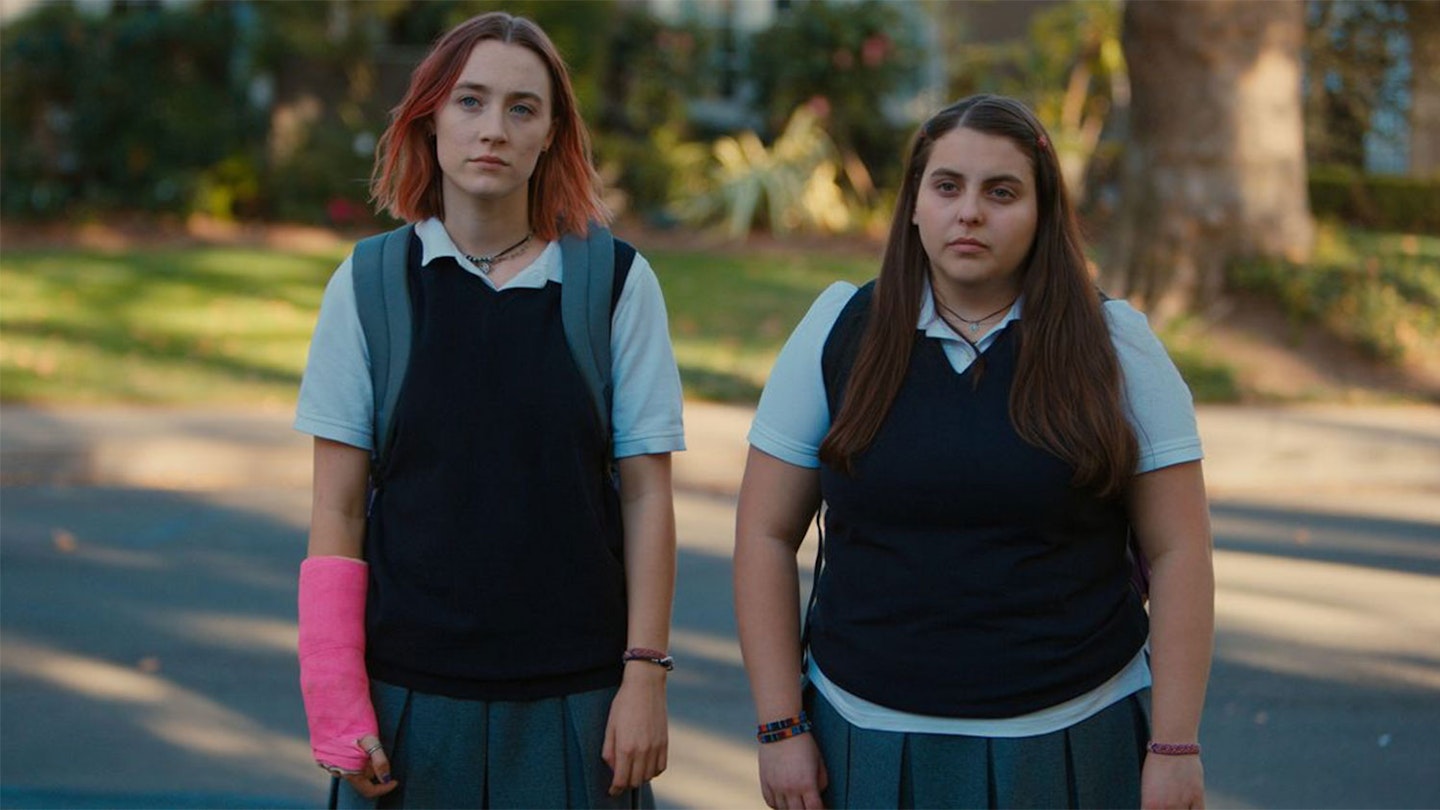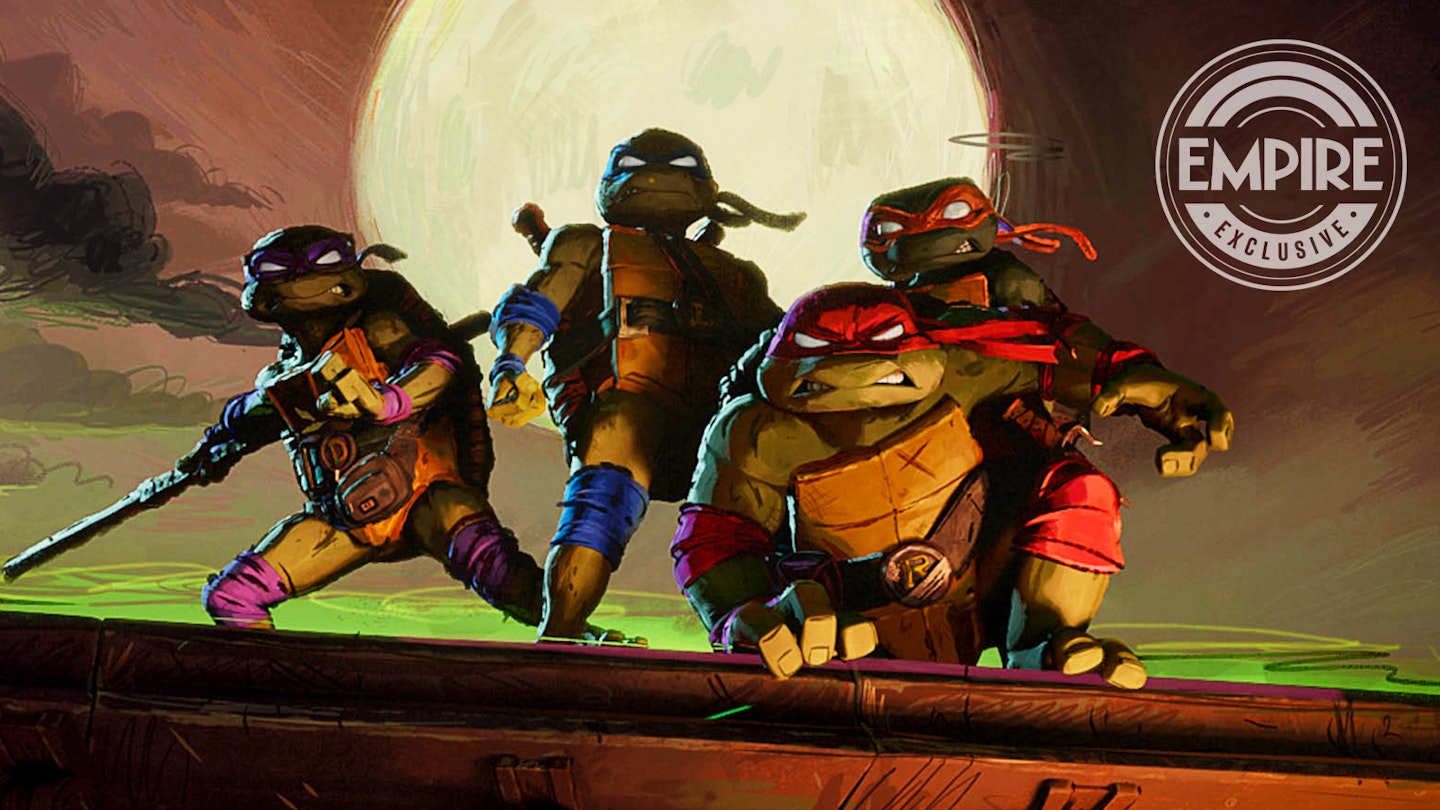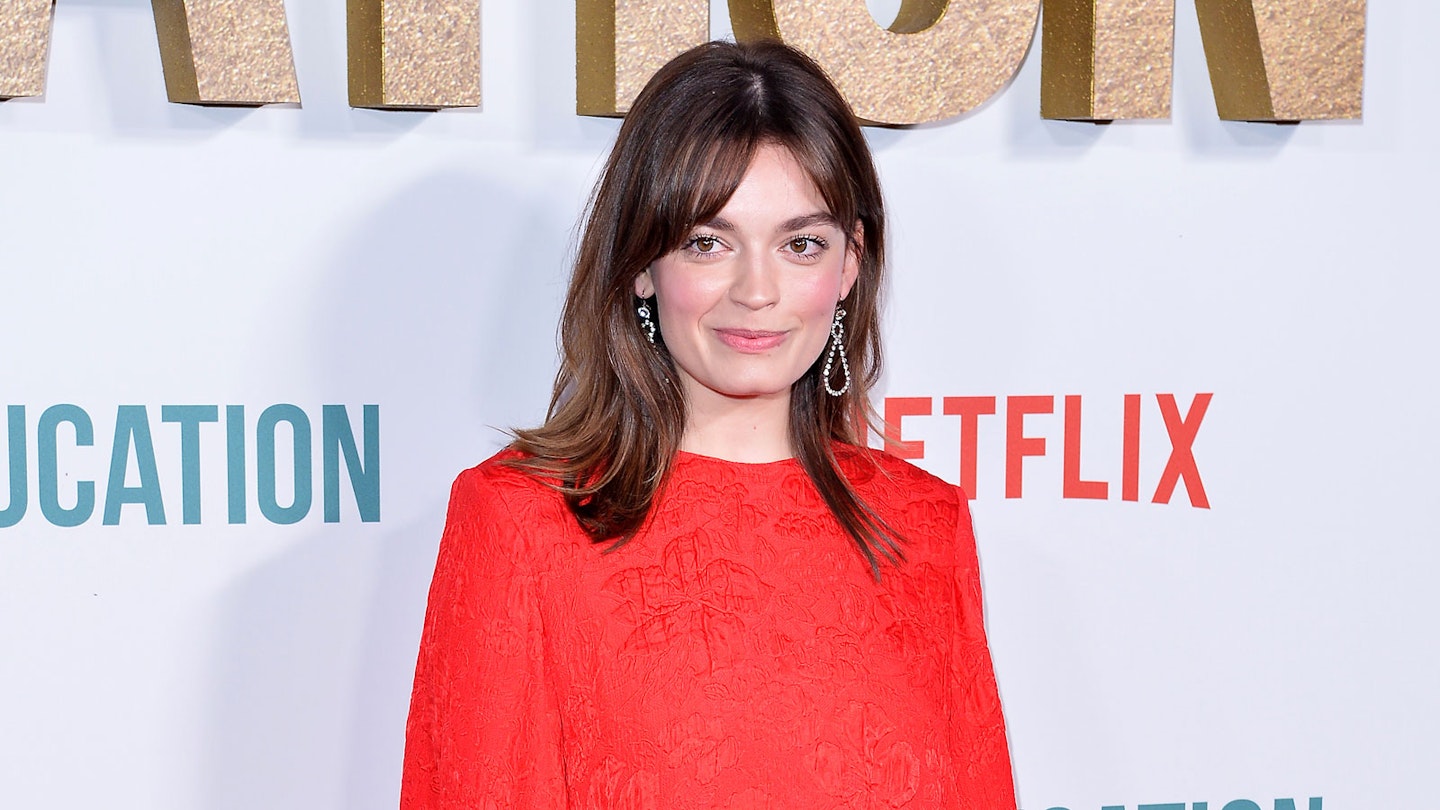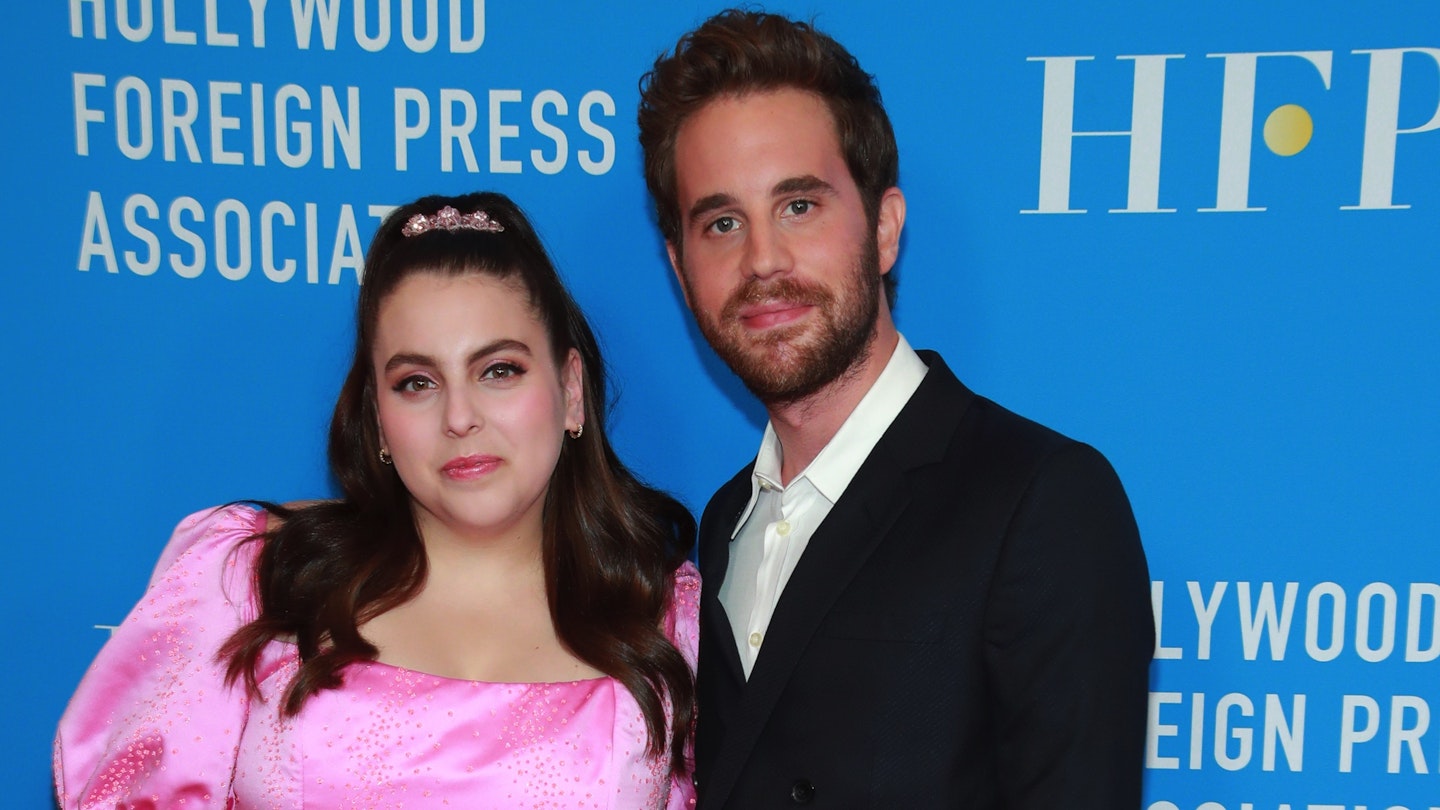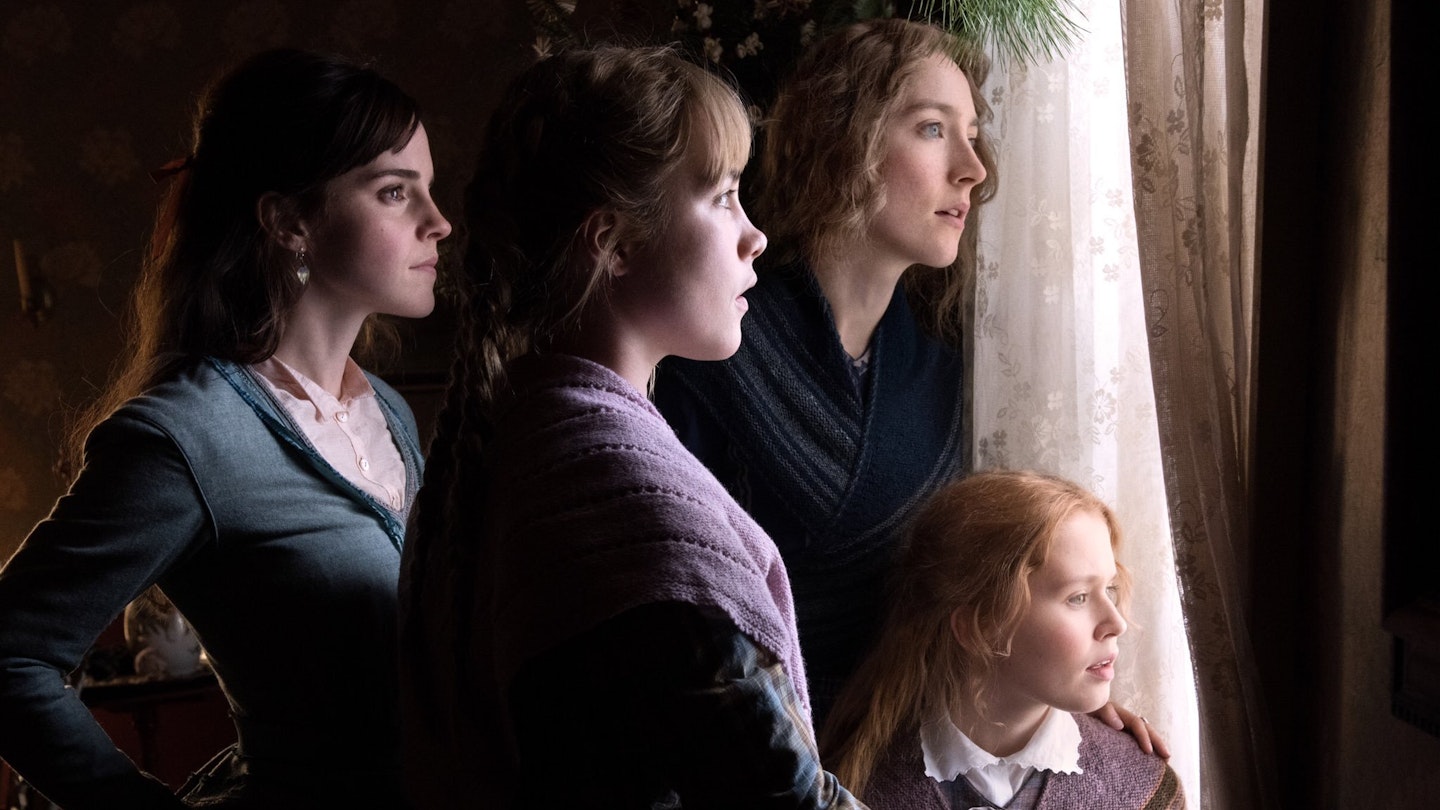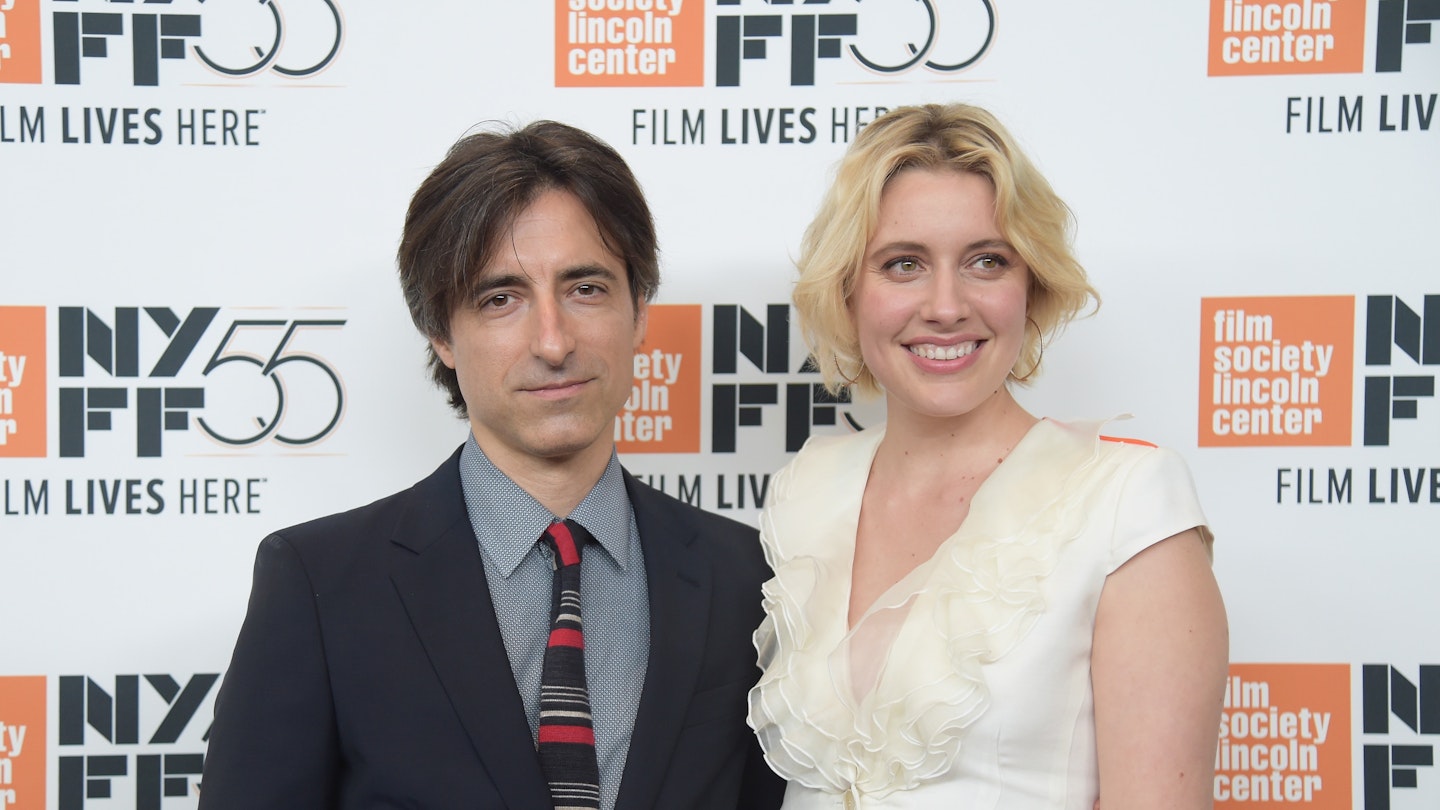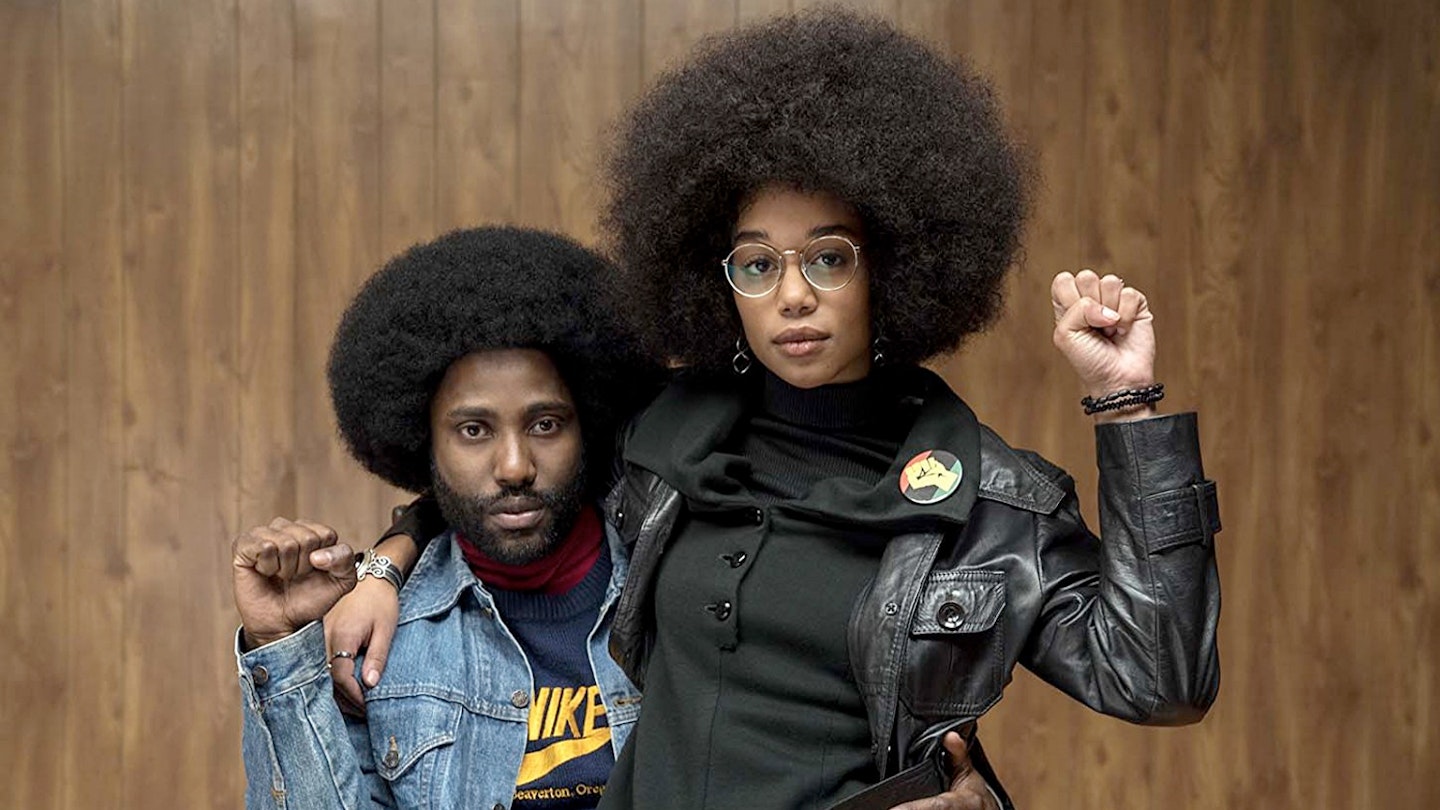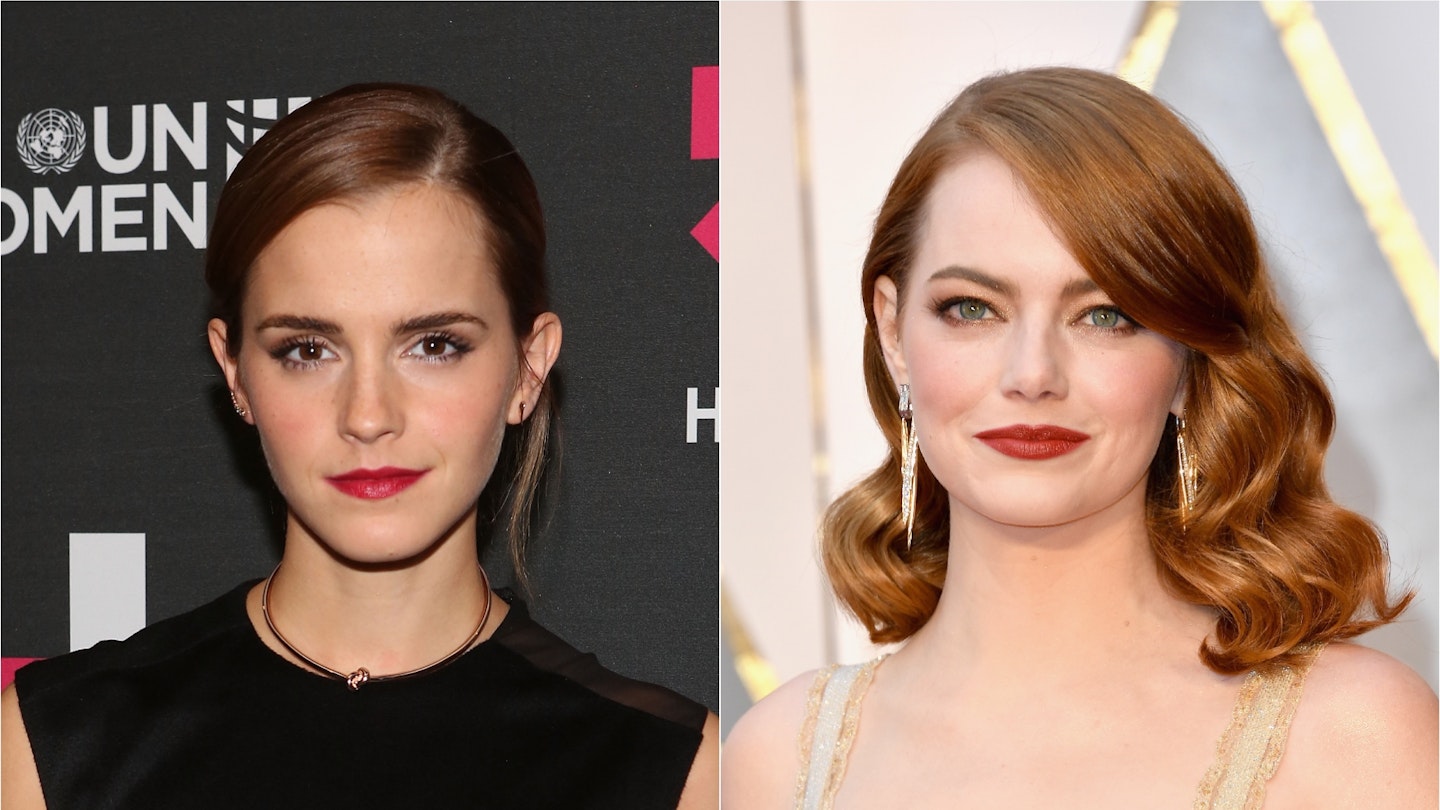“I wish I could live through something,” sighs 17-year-old Christine McPherson, frustrated and bored in her Catholic high school in a small town in Sacramento, or as she despairingly calls it, “the Midwest of California”. She dreams of going to an arts college on the East Coast — though her family can only really afford the local college, much to the quiet heartache of her out-of-work dad, Larry (Letts) — and so she taps her heels against the door marked escape while the parental bond continues to fray and thin beneath her feet. She insists that they, everyone, call her ‘Lady Bird’ (her self-declared given name as it was “given to me by me”) and treats her parents, brother, friends and teachers with an only-at-17 sense of spirited narcissism.
The scuffed heart of the film lies not so much in the relationship of Lady Bird and her mother Marion (Metcalf in a career-best performance), but in the space between them. A space that is by turns dark, hilarious, raw, cruel and tender. Few films have so precisely prodded and pared the fragile skin of that specific relationship, while watching how the scars form. The tone is set in the opening scene when, unable to articulate herself during a fight about college, Lady Bird throws herself out of her mother’s moving car instead.
The other usual milestones are set up — losing her virginity (“I was on top! Who the fuck is on top the first time?” she exclaims memorably), breaking up with her first boyfriend (Hedges), crushing on the cool guy (Chalamet), losing her best friend (played beautifully by Beanie Feldstein) — and while all are entirely typical teen rituals, writer-director Greta Gerwig tells them anything but typically.
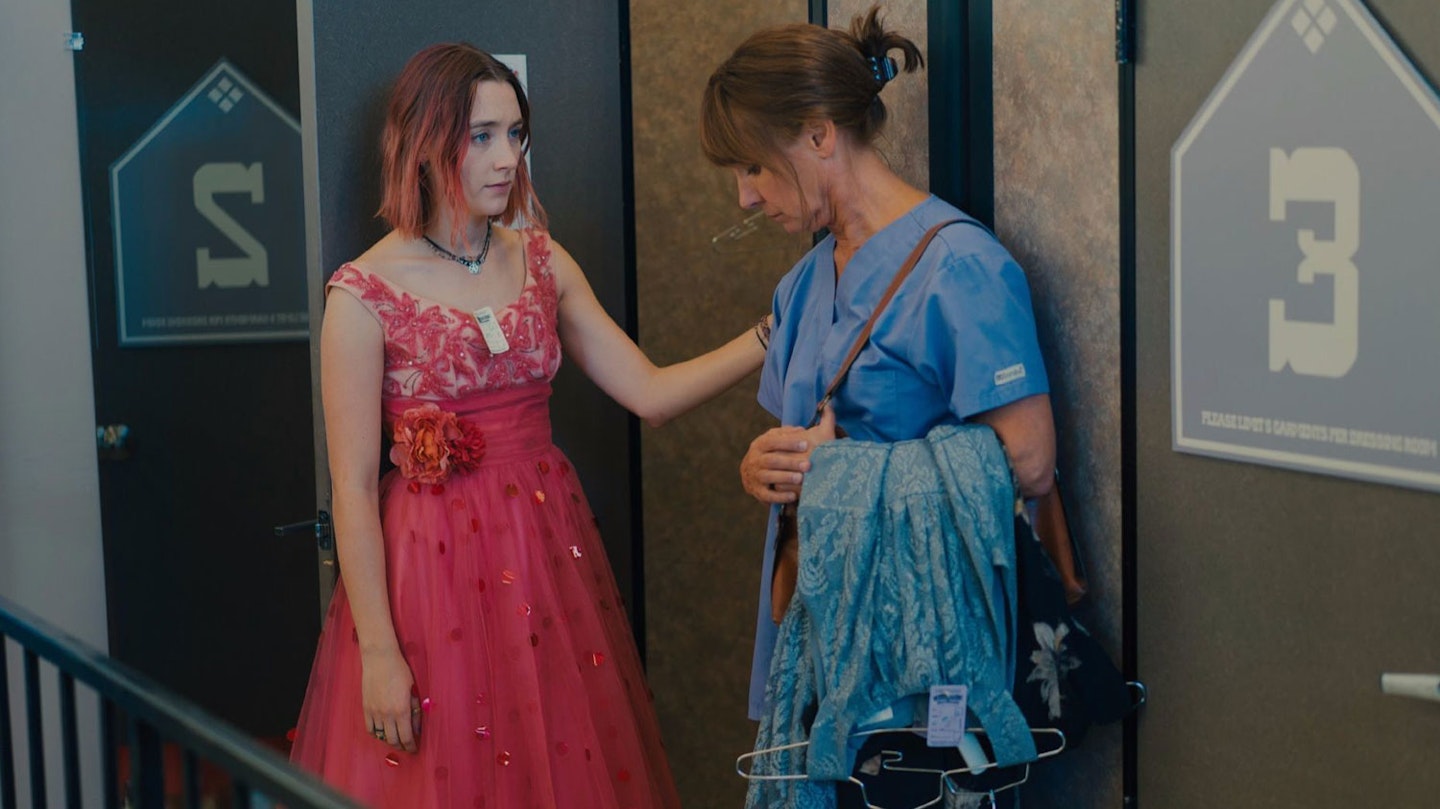
Gerwig’s singular talent in creating a rich emotional world, particularly for young women, is apparent — she wrote the exceptional Frances Ha and Mistress America — and you can see, feel, hear her in every breath and beat of this, her first solo-credit feature that she’s described as a love letter to her hometown.
It’s painfully hilarious, painfully beautiful, joyful and uncynical, with exquisite hilarity sewn into the details (and by God, this film is funny). It’s the details that make this not your average teenage drama, pivoting on a seminal issue or moral or moment. It’s the tens, hundreds, thousands of moments that sometimes mean everything and sometimes mean nothing and most often, just something. The moments that shape us into our selves — the definition and sharp lines emerging alongside adulthood.
The skill of both Gerwig’s storytelling and Saoirse Ronan’s characterisation is ensuring Lady Bird never loses her likeability. Her affectations and arrogance are tempered by self-deprecation and rivers of charm. You sense she’s still waiting for her life to begin, still choosing who she should be, afraid of being an average middle-class girl, with average grades and an average life. But what she doesn’t realise is she’s already being who she is meant to be. And one day, when the pain, the rituals of being 17 are over, she’ll just be left with warmth, with wonder and with wit. The very things Lady Bird delivers in spades. The rest of it will just be a beautiful memory, utter sweetness remembered on the tip of a tongue.
